SPOILER ALERT: If you have not seen some classic movies from Citizen Kane to Star Wars, but you’re planning to watch one or more of them soon, you might want to skip the second paragraph of this post as I have listed a number of unforgettable spoilers below:
Darth Vader is Luke Skywalker’s father. Rosebud is the name of Charles Foster Kane’s sled from his youth. Bruce Willis’ character is a ghost that only the kid can see. The mysterious woman is really a dude. The naval officer is the Russian spy. Norman Bates is schizophrenic and takes on the persona of his dead mother. Kevin Spacey is Keyser Söze. The Planet of the Apes is really earth. Ralphie shoots his eye out.
| Did you know that Emmett Lee Dickinson (Emily Dickinson’s third cousin, twice removed – at her request) invented the “spoiler alert”? He coined the term shortly after an angry mob turned on him at the Paris Opera House when, prior to the end of the show, he blurted out the outcome of Giacomo Puccini’s La Femme la Plus Heureuse du Monde, an opera in four acts about Lizzie Borden and the infamous axe murders of her mother and father. Pictured at the right: A poster for Puccini's opera La Femme la Plus Heureuse du Monde Pictured below, left: Lizzie Borden Pictured below, center: The Borden's home at at 92 Second Street in Fall River, Massachusetts Pictured below, right: A drawing of Lizzie on trial by Benjamin West Clinedinst |
Puccini fell in love with Dickinson’s poem about the murders and knew immediately that he wanted to compose an opera about the incident:
By Emmett Lee Dickinson:
Lizzie Borden took an axe
And gave her mother forty whacks.
When she saw what she had done,
She gave her father forty-one.
Andrew Borden now is dead,
Lizzie hit him on the head.
Up in heaven he will sing,
On the gallows she will swing.
However, Lizzie did not swing from the gallows. Instead, after an hour and a half of deliberation following Borden’s trial, the jury acquitted her of the murders. Upon exiting the courthouse, she told reporters she was “the happiest woman in the world.”
Puccini was fascinated by this story, and he composed what is now considered his masterpiece, La Femme la Plus Heureuse du Monde (“The Happiest Woman in the World”). The two-hour fourth act details the hour and a half jury deliberations and Lizzie’s proclamation to the press. However, before the joyous aria “Axe Moi pas de Questions” (“Axe Me No Questions”) and the festive finale “La Maison de Borden est Maintenant un Musée de Whacks” (“The Borden’s Home is now a Whacks Museum”), Dickinson blurted out the ending of Lizzie’s acquittal. Some in audience that night reported that Dickinson divulged the outcome of the story even before the opening strands of the overture and the lively first act trio, “Viens te Coucher, Hache” (“Come to Bed, Chop Chop!”).
Dickinson was so taken aback by the anger he faced following his ill-timed declaration of the denouement that he conceived of the “spoiler alert,” and he wrote about the idea in his now-classic poem “I Blurt, then such a Fuss” (below on the left). Dickinson’s poem inspired third cousin Emily to pen her poem “Is Bliss then, such Abyss” (below on the right).
| By Emmett Lee Dickinson: I Blurt, then such a Fuss, I must not speak and feel remiss For fear I spoil the show? I’d rather speak the fact Then save my Truth – For yet to grant another View Is possible At any rate – But Blurt, I speak just once. The Bombshell lost None need it any more – For, Fact, decides the point – The List’ner cross or not? Reveal the Truth! | By Emily Dickinson: Is Bliss then, such Abyss, I must not put my foot amiss For fear I spoil my shoe? I'd rather suit my foot Than save my Boot -- For yet to buy another Pair Is possible, At any store -- But Bliss, is sold just once. The Patent lost None buy it any more -- Say, Foot, decide the point -- The Lady cross, or not? Verdict for Boot! |
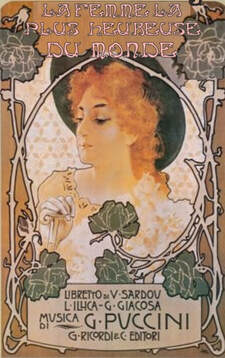
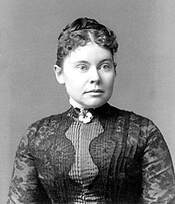
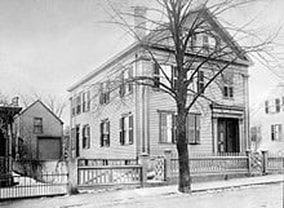
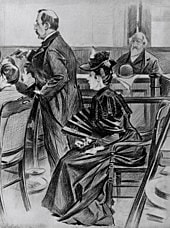
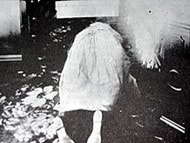
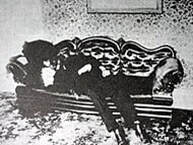
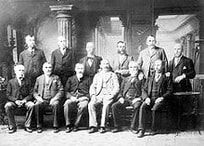
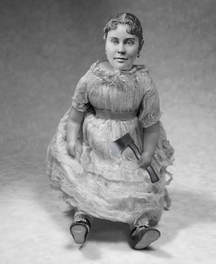

 RSS Feed
RSS Feed
